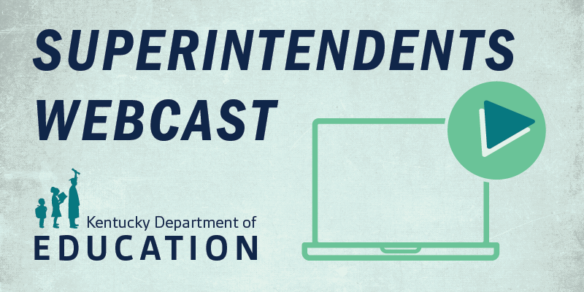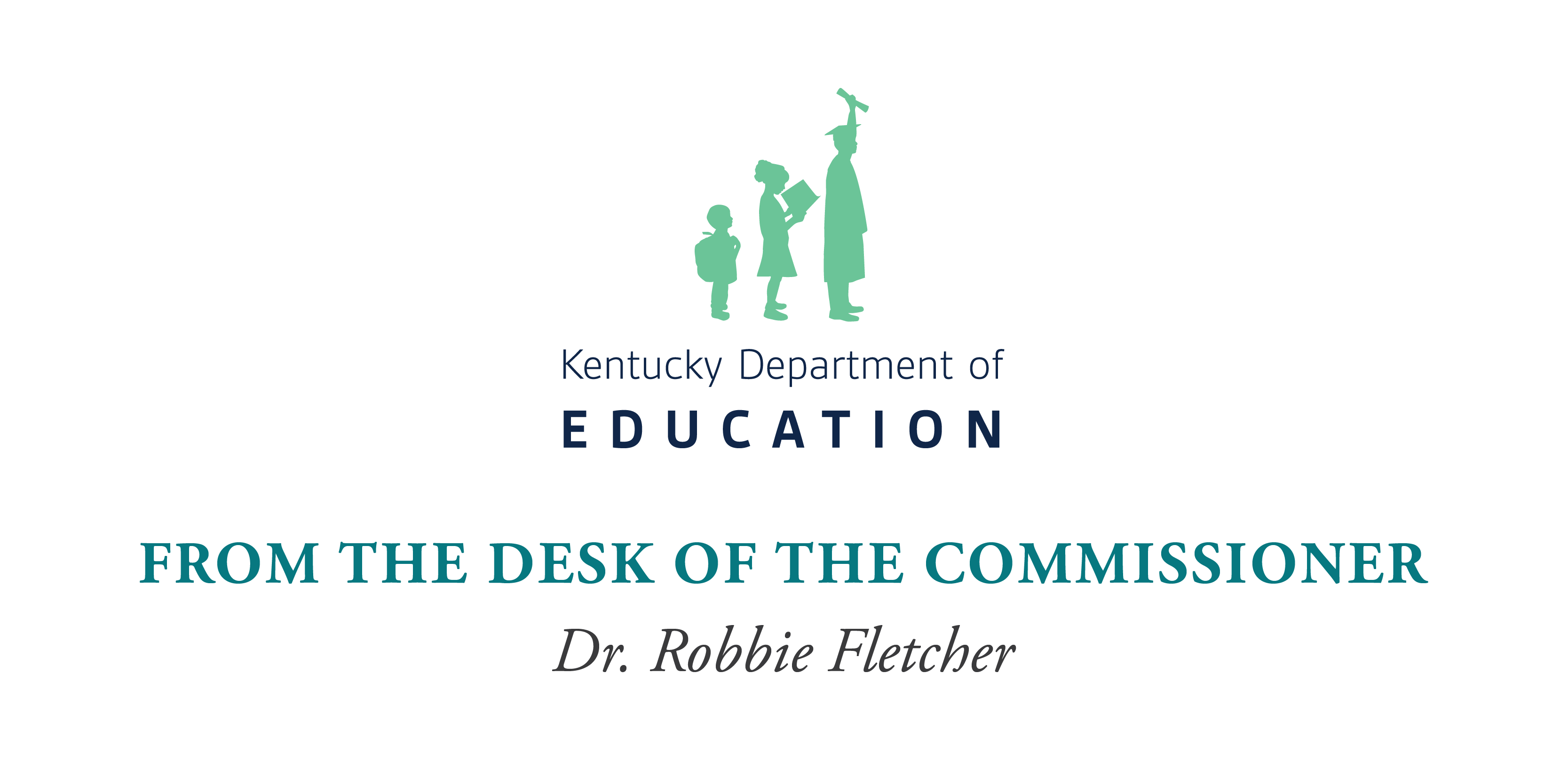
Education Commissioner Jason E. Glass and Kentucky Department of Education (KDE) General Counsel Todd Allen provided an update on the Kentucky Supreme Court’s recent ruling in a lawsuit involving House Bill (HB) 563 during the Superintendents Webcast on Jan. 10.
HB 563 (2021) created a tax credit system that would be used to fund scholarships for students to attend non-public schools. Justices unanimously agreed the program, called Education Opportunity Accounts, would violate the Kentucky Constitution’s prohibition on using state funds for non-public education unless it is approved by a voter referendum.
“As we stand right now, the account-granting organizations and the tax credit scholarships that were previously set forth in House Bill 563 are dead in the water, so to speak,” said Allen. “And now we will wait to see if the General Assembly does something different.”
Glass also discussed a lawsuit that was reportedly filed involving KDE and a recent charter school law passed by the legislature, House Bill 9 (2022). The law creates a funding mechanism for charter schools and changes some regulations surrounding charter school approval.
“There are many constitutional questions surrounding HB 9 and we look forward to the courts clarifying those,” Glass said in a statement. “The KBE promulgated administrative regulations solely in response to HB 9 as instructed by the Kentucky General Assembly. The legislature was very prescriptive on what actions KDE and the KBE must take in HB 9, leaving little room for input.”
Glass added that it will be up to the Kentucky Attorney General’s office to defend the law in court.
“The KDE and Kentucky Board of Education (KBE) will not expend their time and resources defending the General Assembly’s charter school laws as we advised the legislature of constitutional (and other) uncertainties with the law when it was being legislated,” he said.
New legislative session
The new year brought a new legislative session, and several bills touching education already have been filed.
Lawmakers met for four days last week before taking a break until they reconvene on Feb. 7. KDE Director of Government Relations Brian Perry told superintendents about some bills that have been filed and could impact KDE, school districts or education in general:
- House Bill 18: Expands dual-credit scholarships
- House Bill 20: Increases the minimum amount for advertising and bidding school building projects from $7,500 to $30,000
- House Bill 30: Ensures that student privacy exists in school restrooms, locker rooms and shower rooms
- House Bill 32: Allows for the hiring of classified personnel without a high school diploma or equivalent
- House Bill 50/Senate Bill 50: Makes school board elections partisan
- House Bill 88: Provides funding for education initiatives related to Gov. Andy Beshear’s education proposal
- House Bill 99: Requires KDE to create a professional development training schedule for certified personnel; requires each local district to implement the schedule
- House Bill 119: Authorizes participation in a public school interscholastic extracurricular activity by an at-home private school student
- Senate Bill 9: Removes eligibility for a Kentucky Educational Excellence Scholarship if a student is convicted of hazing
- Senate Bill 25: Amends postsecondary readiness indicators
- Senate Bill 31: Amends statute related to concealed deadly weapons
Perry said lawmakers won’t necessarily pursue every bill he highlighted, and several more have yet to be filed.
“Once they gavel back in, we’ll start to see what moves and what doesn’t and get a better understanding of where the new members in both chambers are on a lot of these different issues,” he said.
The final day of session is March 30.
Equity playbook
In-person training for the second group of districts in KDE’s Equity Playbook will begin this week.
KDE Deputy Commissioner and Chief Equity Officer Thomas Woods-Tucker said the training will be held Jan. 12-13 at the Northern Kentucky Cooperative for Educational Services office in Cold Spring. A virtual option also is available.
The Equity Playbook provides district and school leaders with personalized coaching on evidence/research-based practices, content and resources to address opportunity gaps in one or more of the following areas:
- Student achievement;
- Utilization of funding and resources;
- Disproportionality relative to student discipline;
- Culture and climate; and
- Highly effective staff and high-quality instructional resources.
Woods-Tucker said the program has reached nearly 200 individuals so far, and is made available at no cost to participants with the support of KDE’s Elementary and Secondary School Emergency Relief funding through the American Rescue Plan Act. KDE has started accepting applications for the third round of districts.
The next Superintendents Webcast is Feb. 14.




Leave A Comment